
Simon Marks 3pm - 7pm
3 January 2020, 17:26
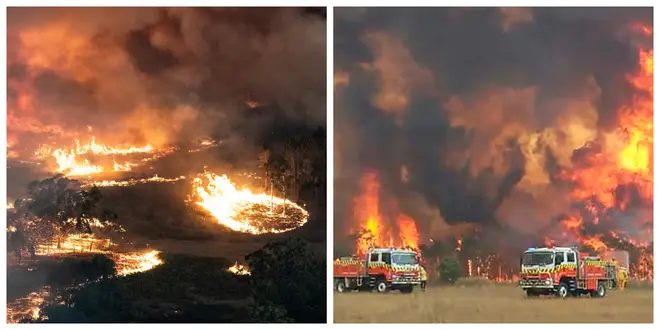
Tourists have been evacuated from holiday hotspots in Australia over bushfire threats as the country continues to battle "uncontrollable" flames.
Staff members of a luxury lodge on Kangaroo Island were forced to shelter in a luxury bunker after fires ripped through the island.
The Southern Ocean Lodge evacuated all guests from the resort on Friday afternoon, after the sprinkler system was activated to try and prevent the flames.
The building has now been closed following structural damage to the building. No injuries have been reported.
Owners James and Hayley Baillie told local media: "It's our worst nightmare come true."
It comes as one of the largest evacuations in Australia's history is under way ahead of hot weather and strong winds that are forecast to worsen devastating wildfires raging across the country.
More than 200 fires were burning and warnings of extreme danger to come on Saturday prompted mass evacuations.
Traffic was gridlocked as people fled and firefighters escorted convoys of evacuees as fires threatened to close roads.
Navy ships were called in to pluck hundreds of people stranded on beaches.
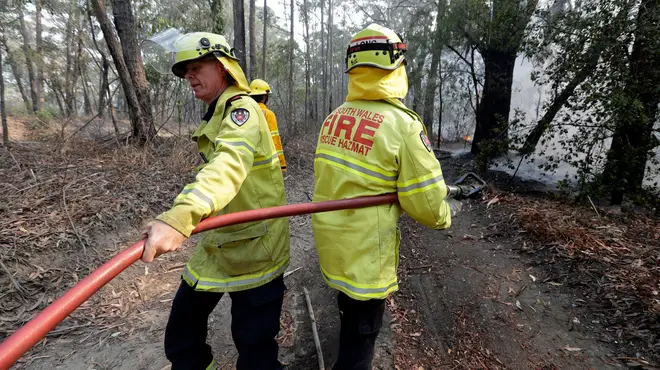
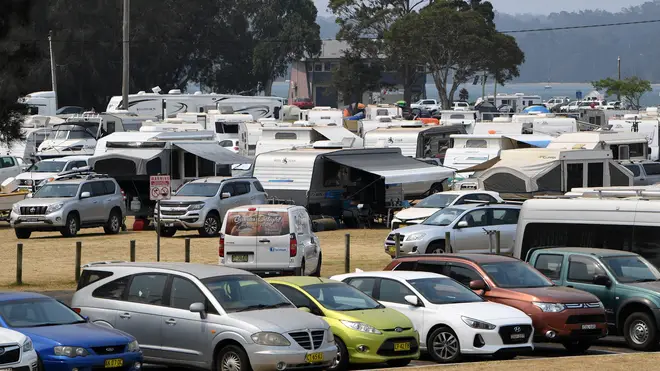
Victoria premier Daniel Andrews declared a disaster across much of the eastern part of the state, allowing the government to order evacuations in an area with as many as 140,000 permanent residents and tens of thousands more tourists.
"If you can leave, you must leave," Mr Andrews said.
In South Australia state, fire officials said the weather conditions were a cause for concern because fires were still burning or smouldering.
"The ignition sources are already there," Country Fire Service chief officer Mark Jones said.
"There are millions of sparks out there ready to go if they break containment lines."
The early and devastating start to Australia's summer wildfires has made this season the worst on record.
About five million hectares (12.35 million acres) of land have burned, at least 19 people have been killed, and more than 1,400 homes have been destroyed.
This week, at least 448 homes have been destroyed on the New South Wales southern coast and dozens were burned in Victoria.
Ten deaths have been confirmed in the two states this week, and Victoria authorities also say 28 people are missing.
Fires are also burning in Western Australia, South Australia and Tasmania.
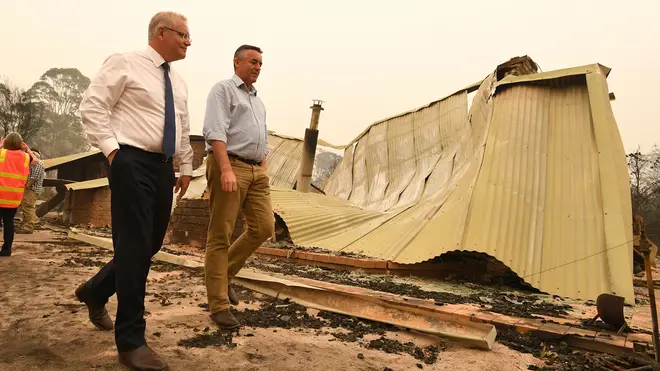
Prime Minister Scott Morrison said he was inclined to cancel a scheduled trip to India later this month because of the wildfires.
In December, he cut short a family holiday in Hawaii in the face of public anger at his absence.
He made the remarks in Bairnsdale, Victoria, where he received a warmer welcome than he had in another wildfire-ravaged town a day earlier.
Mr Morrison cut short Thursday's visit to Cobargo in New South Wales when locals shouted at him, made obscene gestures and called him an "idiot" and worse, criticising him for the lack of equipment to deal with the fires in town.
In a radio interview, Mr Morrison said he understood the anger of people affected by the fires.
"People are angry and people are raw and people are upset," he said.
"Whether they are angry with me or they are angry about the situation, all I know is they are hurting and it's my job to be there to try and offer some comfort and support."
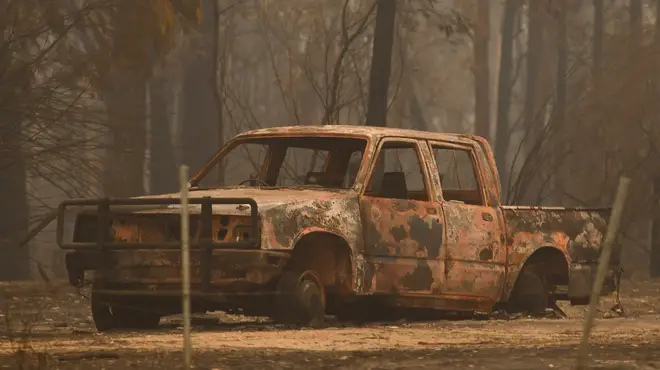
In an interview late on Friday with the Australian Broadcasting Corporation's A Current Affair programme, Mr Morrison was defensive about his handling of the crisis.
He denied having ignored the warnings of fire chiefs that Australia was heading into a catastrophic fire season.
"I listen to the fire chiefs that are in their jobs now," he said.
"They provided those exact same warnings and prepared our services to deal with the situation.
"Because of the drought, because of the fact there have been no quenching rains following the fires starting, that means this season is running longer and is presenting more difficult challenges."
Mr Morrison's response was seen to echo his repeated assertions that the fires are a natural disaster, and not the result of climate change exacerbated by Australia's dependence on coal and other fossil fuels.
He was asked about the apparently cool reception he received in fire-stricken areas, including many who refused to shake his hand.
"There's been different receptions," Mr Morrison said, adding "where I was yesterday particularly they are very raw".